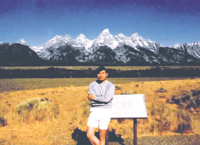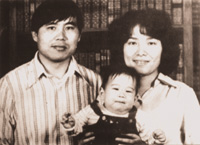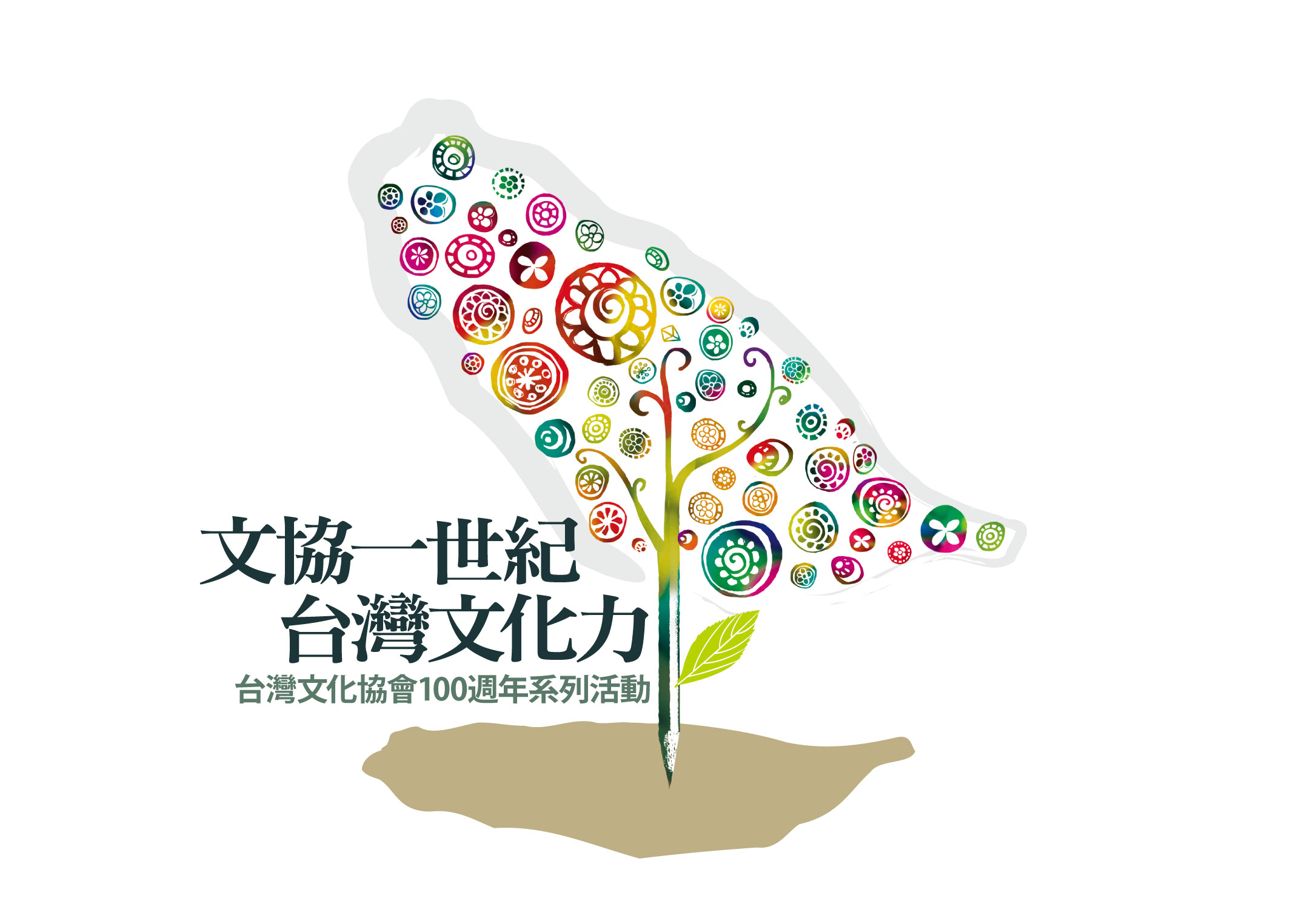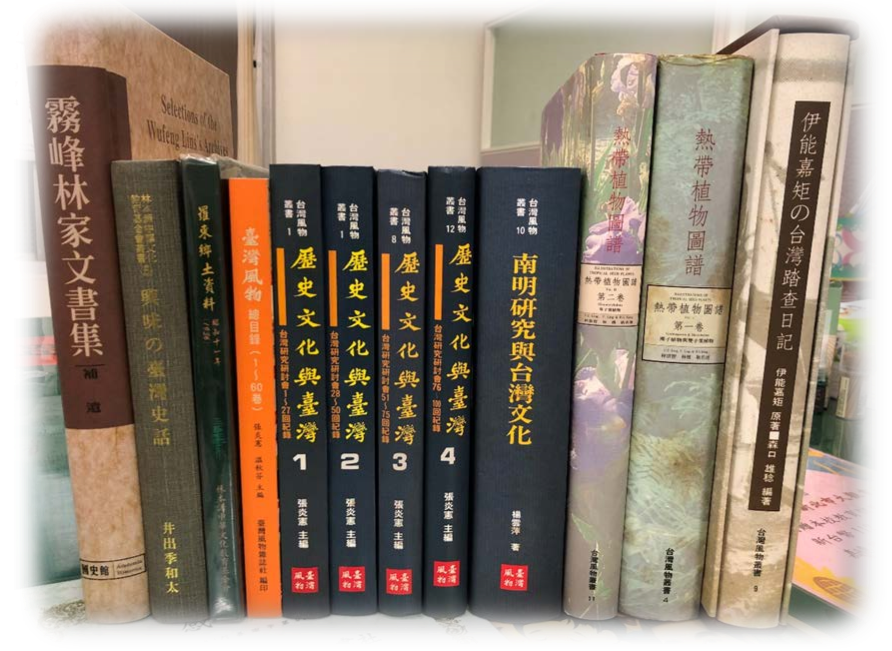 真相‧緝兇‧追思: 陳文成事件二十週年祭
真相‧緝兇‧追思: 陳文成事件二十週年祭
Truth, finding the perpetrator, and recollection:
The 20th anniversary of the Chen Wen-chen incident
胡慧玲/Hu Hui-Lin
(陳文成博士紀念基金會總幹事)
(Secretary General, The Chen Wen-chen Memorial Foundation)
2001-07-02
 Chen Wen-chen during his stay in the U.S. With his hearty and open personality and his willingness
Chen Wen-chen during his stay in the U.S. With his hearty and open personality and his willingness
and ability to act, he was determined to return to Taiwan as soon as he could to offer what he had learnt.
1960年代中期至70年代中期是全世界秩序大重整的年代,留學海外的陳文成博士在呼吸了西方國家民主自由的空氣,並深切感受台灣政治與學術氛圍之苦悶與封閉後,亟思歸國以貢獻所知所學。但一如林義雄滅門血案,陳文成的理想殞滅在無情的白色恐怖漩渦;在當時的政治氛圍下,他的死成了眾人皆知其由卻破不了的命案。今年六月底,陳文成博士殉難即滿二十週年,也正是追查兇案的法律最高期限二十年屆滿之際,本報「台灣歷史之窗」特別邀請陳文成博士紀念基金會總幹事胡慧玲執筆,述說這位英年早逝的民主烈士之生平,及其殉難所引起的國際視聽帶給台灣政治的影響。
The 1960s and 1970s were a time of great changes in world order, and Dr. Chen Wen-chen, who had studied abroad, breathed the air of democracy and freedom that prevailed in western nations. The stifling and closed-off political and academic atmosphere of Taiwan affected him deeply, and he urgently wanted to return home to offer what he had learnt. But just as with the Lin Yi-hsiung family murders, Chen Wen-chen’s ideals met their death in the cold-blooded horror of the White Terror; in the political atmosphere of the times, everybody knew why he had been killed, and yet the case remained unsolved. The end of June this year marks the twentieth anniversary of Dr. Chen’s martyr-like death, and the statute of limitations on the investigation of murder cases also expires after twenty years. The Taiwan News has invited Hu Hui-Lin, secretary general of the Chen Wen-chen Memorial Foundation, to write this week’s “Window on Taiwan,” and describe the life of this martyr for democracy who died a premature death, and the legacy he has left to politics in Taiwan and the influence of international public opinion about his death has had on Taiwan.
發生於1981年7月2日的陳文成事件,與發生於1980年2月28日的林義雄家祖孫命案相仿,幾乎每個人都知道命案是誰幹的,當局卻又始終無法查出真兇,無法還家屬和社會公道。80年代初期,美麗島事件發生後,風聲鶴唳,草木皆兵,這兩大命案卻又再一次於台灣人民傷痕纍纍的心靈劃上一道血淋淋的印記。特別是陳文成博士返鄉慘死故土一事,更使無以數計的台灣父老嚴詞警告海外子弟:永遠,永遠不要返回台灣。
The Chen Wen-chen incident occurred on July 2, 1981, and was similar to the Lin Yi-hsiung family murders of February 28, 1980, in that virtually everybody knows who was responsible for the murder, yet the authorities have never been able to find the perpetrators, and thus bring justice to the victims’ relatives and to society. At the beginning of the 1980s, after the Kaohsiung Incident, danger seemed to be lurking round every corner, and people feared there were enemies everywhere, and these two homicide cases left yet another bloody impression on the already scarred psyches of the Taiwanese people. In particular, the case of Dr. Chen Wen-chen’s violent death on a visit to his old home caused countless elders in Taiwan to give stern warnings to the younger generation overseas: never, ever come back to Taiwan.
出身貧寒,個性豪爽的優等生
陳文成,1950年出生於台北縣林口鄉,出身貧寒,但一路就讀建中、台大數學系和數學研究所,嗜讀書,好運動,個性爽朗熱情、體魄結實,綽號「大牌」,是台大校園令人印象深刻的一號人物。畢業後,陳文成與學妹陳素貞結婚,1975年赴美國密西根大學研究所,表現優異,1978年獲博士學位,同年並獲聘任教於卡內基美隆大學。在美國求學、任教期間,陳文成關心台灣政治發展,並研究政治理論,積極參加同鄉會、人權會,推動民主基金會,在財力上支援島內的《美麗島雜誌》。陳文成個性大剌剌、坦盪盪,當時寄回台灣給美麗島雜誌的捐款支票,光明正大地寫了自己的姓名,也埋下日後殉難之因。
Born poor, an excellent student with a frank and forthright personality
Chen Wen-chen was born into a poor family in Linkou, Taipei County, in 1950, but he attended Chien Kuo High School and the mathematics department and graduate school of National Taiwan University. He had a real love for studying, was good at sports, and had a straightforward and enthusiastic personality, sturdy, healthy physique, and the nickname “big guy”. He was a character who made a deep impression on the NTU campus. After graduation, Chen Wen-chen married Chen Su-jen, a woman who had studied a few years below him at NTU, and in 1975 they moved to Michigan in the U.S. for graduate school, where Chen Wen-chen performed extremely well, and was awarded his doctorate in 1978. That year, he was employed to teach at Carnegie Mellon University. While studying and teaching in the U.S., Chen Wen-chen remained concerned with political developments in Taiwan, and carried out research into political theory, actively participated in Taiwan students associations and human rights associations, worked to promote democratic foundations, and gave financial support to Formosa magazine, published in Taiwan. Chen Wen-chen’s personality was rebellious and open, and the checks he sent back to Taiwan to support Formosa magazine were signed, in his open and aboveboard style, with his own name, thus sowing the seeds for his future martyr-like death.
大變動的時代,一個赴美留學生的心願
1960年代中期至70年代中期是全世界秩序大重整的年代。從西方的反戰運動,到中國的文化大革命,舊價值被質疑,舊威權被推翻,舊文化被顛覆,每天、每個角落都有驚天動地的變革。唯獨台灣活在國民黨反共復國的神話統治下--一個以不變應萬變的沈默之島--完全不受變動世界的影響。
The aspirations of an overseas student in the US during a time of great change
From the mid-1960s to the mid-1970s, the entire world order underwent a great reshuffle. From the anti-war movements in the West to the Cultural Revolution in China, old values were questioned, old authority and old cultures were subverted and overthrown, and every day, in every corner of the world, earthshaking transformations were taking place. Only Taiwan was living under the anti-communist, recover-the-mainland myth of unification promoted by the Kuomintang — a silent island which dealt with shifting events by sticking to a fundamental policy — and was totally unaffected by the changing world.
70年代中期之後,《台灣政論》創刊、鄉土文學論戰開始、中壢事件爆發,甚至以後的《美麗島雜誌》的準組黨運動,幾年之間在全台灣鼓起一波波的浪潮,使整個文化、政治、社會從僵硬走向鬆動,從停滯邁向新生。
After the mid-70s came the publication of Taiwan Political Review, the beginning of the debate over native literature, the Chungli incident, and even the quasi-party-organizing movement of the Kaohsiung incident which came later. Within the space of a few years, one wave after another began to swell over the whole of Taiwan, marking a transition from rigid to relaxed in culture, politics and society, from stagnation to new life.
就在這個台灣新生的關鍵時期,正值青壯年的陳文成和許許多多赴美深造的台灣子弟一樣,接受西方文化衝擊並經歷深刻的自我反省之後,對台灣這塊土地的歷史和命運感到更瞭解,更關心,更努力。
During this crucial period of new life for Taiwan, Chen was in his prime. Having been through periods of Western culture shock and deep self-reflection, in common with many other Taiwanese who had moved to the U.S. for further education, he gained deeper understanding and of Taiwan’s history and its fate, and devoted more mental energy and hard work to this cause.
1981年5月20日,任教於卡內基美隆大學的陳文成博士去國六年之後,帶著妻子和剛滿一歲的兒子返台探親,兼做學術演講,並遍遊他思念六年的故鄉風光,他說:「只有台灣的山才是山,只有台灣的水才是水。」他告訴姐姐陳寶月,他計劃儘快回台灣,奉獻所學。
On May 20, 1981, six years after Chen had arrived in the U.S., he returned to Taiwan with his wife and one-year old son to visit family and give some lectures, and also to travel around the home country he had been thinking about for the past six years. He said: “Only in Taiwan are mountains truly mountains, only in Taiwan is water truly water.” He told his sister Chen Pao-yue that he planned to moved back to Taiwan as soon as he could so that he could offer his country all he had learnt.
國民黨帶走一個活人,還家屬一具屍體
六月底,回美國工作的日期已到,出境証卻下不來。7月2日上午,三名警總人員持約談傳票,從家裡帶走了陳文成。從此,陳文成的父母、妻兒、兄弟和朋友再也沒有見過活著的陳文成。
The KMT took away a living man and returned a corpse
By the end of June, it was almost time for him to return to his job in the U.S., but he was unable to obtain an exit permit. On the morning of July 2, three members of the Taiwan Garrison Command summoned Chen for questioning and took him from his house. His parents, wife, child, siblings and friends never saw him alive again.
陳文成被警總帶走之後竟日未歸,家人發狂般找尋,二日晚上還打電話到警總問平安,警總的人還說:「晚上八點多,就送他回美國了。幹嘛回來,笨蛋。」三日下午,古亭分局員警通知陳氏家屬,說陳文成車禍身亡,叫家人去認屍。實則是7月3日清晨,陳文成已被發現橫屍台灣大學校園。享年三十一歲。
After an absence of an entire day, Chen Wen-chen did not return home, and his family searched frantically for him. On the evening of July 2, they called the Garrison Command to inquire about him, and were told “We sent him back to the U.S. at some time after 8 p.m. Why the hell did the idiot come back?” On the afternoon of July 3, personnel from the Kuting Police Station informed the Chen family that Chen Wen-chen had perished in a car accident, and asked them to come and identify the body. The truth was that in the early hours of July 3, Chen’s body had already been discovered on the NTU campus. He was 31 years old.
青年學者陳文成枉死引起軒然大波,警總每天發佈不實言論,忽而說早就送陳文成回家,忽而指使假証人說陳文成流連在外不歸,忽而說陳文成畏罪自殺。多年後,警備總司令汪敬煦在其回憶錄說「陳文成是情殺,」完全忘了自己的罪行:帶走一個活人,還家屬一具屍體。
The unjust death of the young academic Chen Wen-chen unleashed a great uproar, and each day, the Taiwan Garrison Command would issue more untrue statements, one minute saying that they had sent Chen home early on, the next minute setting up false witnesses to say that Chen was out enjoying himself and just didn’t want to return home, then saying that he had committed suicide because he feared punishment. Many years later, the Taiwan Garrison Commander of the time, Wang Ching-hsu, wrote in his memoirs that “Chen Wen-chen was the victim of a sex murder.” He had completely forgotten his own crime: taking away a living person and returning a corpse to his family.
國際間的迴響
陳氏家屬自此活在傷痛和恐懼之下。八月,陳素貞攜子返美,迎接她的是卡內基美隆大學校長塞爾特的義助和台灣鄉親的慰藉。賽爾特校長特派該校統計系系主任狄格魯和法醫魏契來台驗屍,返美後舉行記者會,証實「陳文成死於他殺」。賽爾特校長多年鍥而不捨地寫信給蔣經國,要求「還我陳文成博士,」並主動提供日後陳翰傑就讀該校的獎學金。美國國會為此舉行聽証會,陳文成命案上了頭條新聞。
International reverberations
From this moment on, Chen’s family lived in a world of pain and fear. In August, Chen Su-jen returned to the U.S. with her son, where she was met by the magnanimous assistance of Carnegie Mellon’s president Richard Cyert, and the consolation of the local Taiwanese community. Cyert sent Professor Morris DeGroot of the Department of Statistics and forensics expert Dr. Cyril Wecht to Taiwan to carry out an autopsy, and on their return to the U.S., they held a press conference, where they confirmed that “Chen Wen-chen was murdered.” For many years, Cyert wrote letter after letter to Chiang Ching-kuo, requesting that he “return our Dr. Chen Wen-chen.” He also took the initiative to set up a scholarship fund for the Chens’ son, Eric, to study at Carnegie Mellon. The U.S. Congress held a hearing, and Chen Wen-chen’s murder made headline news.
 Chen Wen-chen, Chen Su-jen and their son, Eric. Chen was murdered not long after this picture was taken.
Chen Wen-chen, Chen Su-jen and their son, Eric. Chen was murdered not long after this picture was taken.
陳文成的殉難使國際社會正式目睹了國民黨的胡作非為,使美國政府以果決做法處理校園特務的告密習性,也使台灣人民爭取民主的苦難面貌鮮明地呈現於世人眼前。
Chen Wen-chen’s death brought the international community’s attention to lawless behavior of the KMT, and forced the U.S. government to use firm and resolute methods to deal with habitual informing by campus secret agents, and also brought the bitter struggle for democracy by the people of Taiwan to the attention of the rest of the world.
陳文成是一個優秀台灣子弟的典型,他沒想要當英雄,當烈士,入忠烈祠。他的慘死是台灣白色恐怖末期一個醒目的血腥記號。陳文成事件直接、間接地影響台灣的國際形象,使國民黨的殺戮稍加收斂,無辜犧牲者的數字因之減少。
Chen Wen-chen was a classic example of outstanding Taiwanese youth, but he never wanted to be a hero or a martyr, or be included on the Martyrs’ Shrine. His violent death was an arrestingly bloody symbol of the tail-end of Taiwan’s White Terror. The Chen Wen-chen incident directly and indirectly influenced Taiwan’s international image, and made the KMT reign in slightly their propensity for murder, so that fewer innocent victims died.
「台美文化交流基金會」正名為「陳文成博士紀念基金會」
事件過後,海內外台灣人踴躍捐輸成立紀念基金會。當時教育部以「命案未破」為由,不准基金會有「陳文成」三個字出現,彷彿破案不是政府的義務,而是家屬的責任。基金會不得不以「台美文化交流基金會」為名,以推展台灣文化為宗旨,十餘年舉辦二二八學術研討會、音樂會、歷史影像展、人權電影展等各個面向的文化活動,紀念以行動和身軀為台灣奉獻的故人。直至2000年七月,新政府成立之後,經幾番努力,終得以「正名」為陳文成博士紀念基金會。此事距命案發生己經十九年了。
Taiwan-US Culture Exchange Foundation, officially called the Chen Wen-chen Memorial Foundation
After Chen’s murder, Taiwanese people both inside and outside Taiwan enthusiastically donated funds to set up a memorial foundation. At the time, the Ministry of Education wouldn’t allow the words “Chen Wen-chen” to appear in the foundation’s name, because, they said, “the case was still unsolved,” as if cracking the case was the duty not of the government but of Chen’s family. The foundation had no choice but to use the name “Taiwan-US Culture Exchange Foundation” and promote its objective as being Taiwan culture. Over the last two decades it has organized academic symposia on the 228 Incident, concerts, exhibitions of historical images, human rights film festivals and other cultural activities to commemorate this old friend who offered so much to Taiwan with his actions and ultimately his body. In July 2000, after the formation of the new government and a lot of effort, the foundation’s “official name” was finally changed to the Chen Wen-chen Memorial Foundation. 19 years had already passed since Chen’s murder.
追查死因,還原歷史真相
1994年2月20日,基金會與立法委員蔡同榮等合辦「陳文成死因公聽會」,出席之法務部、警政署官員表示:陳文成死因可朝他殺調查,不一而足。2000年1月,基金會成立陳文成事件追查小組,由基金會董事黃宗樂教授召集,敦請李勝雄律師、張政雄律師、洪貴參律師為義務律師,要求(1)還原真相;(2)追究責任;(3)請求賠償。經一年餘多次會議的討論後,決定將於2001年六月底,二十年的法律期限屆滿之前,向當時的警備總司令汪敬煦、保安處處長郭學周、組長鄒小韓、幹員王文彬、王憶華等五名兇嫌提起告訴。
Investigating the cause of death and restoring the true history
On February 20, 1994, the Foundation, along with the legislator Chai Trong-rong and others, held a public hearing on the cause of Chen Wen-chen’s death, where representatives from the Ministry of Justice and the Criminal Investigation Bureau said that, for instance, the investigation into the cause of Chen Wen-chen’s death could be conducted as with a murder case. In January 2000, the Foundation established the Chen Wen-chen Incident Investigation Working Group, convened by the director of the foundation, Huang Tsung-le, which earnestly requested that the lawyers Lee Sheng-hsiung, Chang Cheng-hsiung and Hung Kuei-tsan, working pro bono, demand (1) restoration of the truth; (2) an inquiry into who was responsible for his death; (3) a request for compensation. In over a year, after many meetings were held to discuss these matters, it was decided that at the end of June 2001, before the expiration of the 20-year legal limit, they would raise lawsuits against five suspects, Wang Ching-hsu, Taiwan Garrison Commander in 1981, Kuo Hsueh-chou, head of the Security Department, division director Tsuo Hsiao-han, and the cadres Wang Wen-bin and Wang Yi-hua.
陳文成事件的二十年始末代表民主之路所付出的奮鬥,彰顯了公義之路所需的耐心和堅忍。陳文成事件的平反與否考驗新政府的信仰和決心。陳氏家屬表示:「連事隔五十年的二二八事件都得以平反,我不相信陳文成事件不行。」
The whole twenty-year story of the Chen Wen-chen incident represents the battle that has been waged on the road to democracy, and shows how much patience and fortitude is needed on the road to justice. Whether or not the miscarriage of justice in the Chen Wen-chen incident will be redressed will test the conviction and resolve of the new government. Chen’s family has said: “Even fifty years later, the 228 Incident was redressed, and we don’t believe that this is impossible in the case of the Chen Wen-chen incident.”
Edited by Tina Lee/ translated by Elizabeth Hoile
李美儀編輯/何麗薩翻譯









